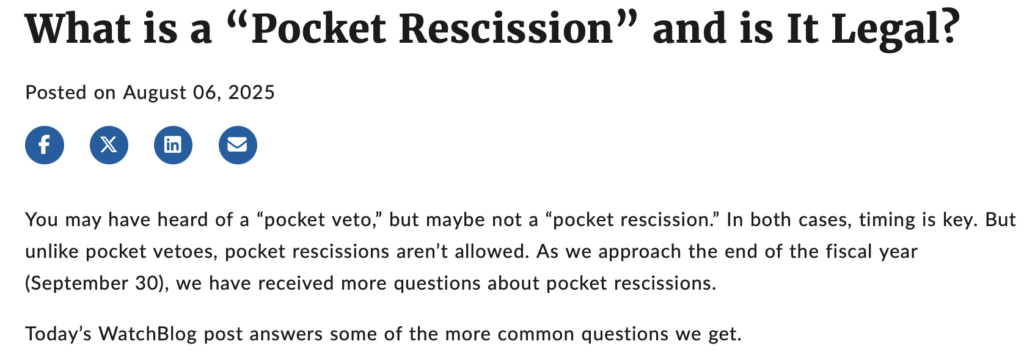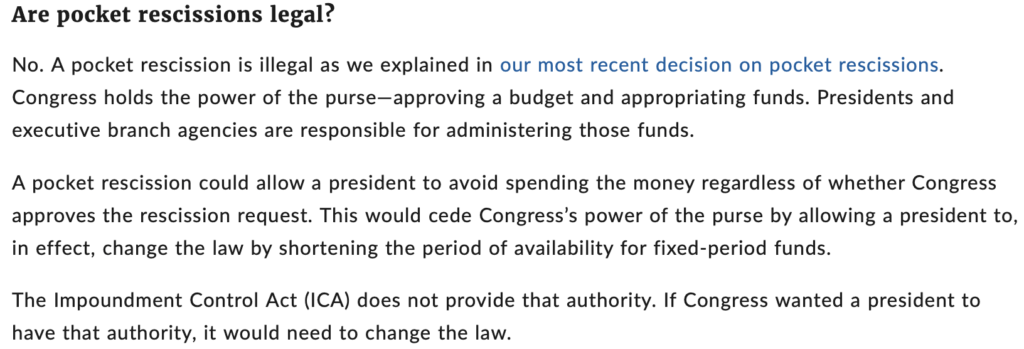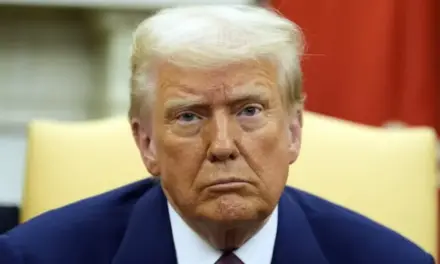Let me tell you a secret about Generation X. We grew up with Schoolhouse Rock. We all learned about how a bill becomes a law. And, yes, we also learned that the president can veto a bill. But if the president signs a bill, that makes it a law. Also, while “I’m Just a Bill” only hinted at it, Congress can also override a president’s veto to make a bill into a law.
Either way, once a bill is a law, the president has to live with it. That’s what we were taught and what we believe.
We never were taught about a “pocket rescission.” To Generation X, that’s not a thing. And it looks like a lot of people in Congress agree with us.
The White House budget office said Friday morning that President Donald Trump has canceled $4.9 billion in foreign aid by using a so-called pocket rescission — furthering the administration’s assault on Congress’ funding prerogatives.
The move raises tensions on Capitol Hill as lawmakers face an Oct. 1 deadline to avoid a government shutdown. Many lawmakers from both parties, as well as Congress’ top watchdog, view the maneuver as an illegal end-run around their “power of the purse.”
What we’re talking about here are foreign aid funds appropriated by Congress in a bill that the president signed, which makes it a law. It’s the administration’s responsibility to spend this money in the way Congress intended it to be spent.
So, how are they attempting to “legally” get around this requirement?
Well, you see there’s a process available to the president if for some reason he decides that he doesn’t want to send money to a foreign country. Things happen, after all, and sometimes a friend can become a foe.
The White House is allowed to send Congress a clawbacks request and then withhold the cash for 45 days while lawmakers consider whether to approve, reject or ignore the proposal.
This is reasonable. And if Congress agrees with the administration that certain foreign funds should no longer be spent, then there’s no disagreement and no problem.
But this is $4.9 billion worth of money spanning multiple countries, with no showing of cause or itemized rationale. Congress is unlikely to along with this.
The administration says that’s of no concern to them.
Because there are less than 45 days left before the end of the fiscal year, Trump’s top budget officials — led by budget chief Russ Vought — argue that they can employ the so-called pocket rescission to withhold the funding until it lapses at month’s end, ensuring its cancellation regardless of what Congress decides.
You see, they’ll ask Congress to approve their decision, but since the clock will run out during the grace period, Congress has no opportunity to make a decision one way or the other.
Since this may be removed from the Government Accounting Office’s website at any moment, I am going to take a screenshot.


Do you see the problem here?







